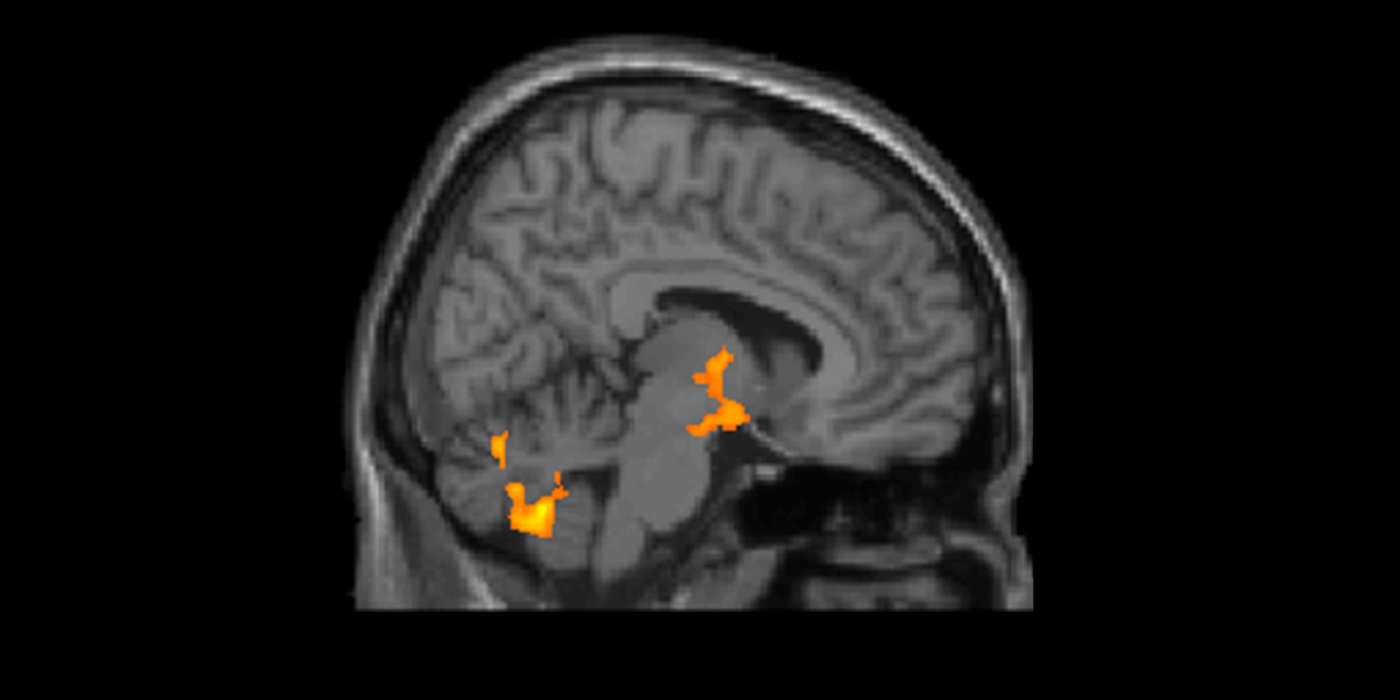
Statistical map of microglial activation: stark age/gender related differences
Translocator protein (TSPO) positron emission tomography (PET) shows that, with aging, women not men display increased inflammation in a hypothalamus region extending to thalamus. See Butler lab's August 2022 Scientific Reports paper.
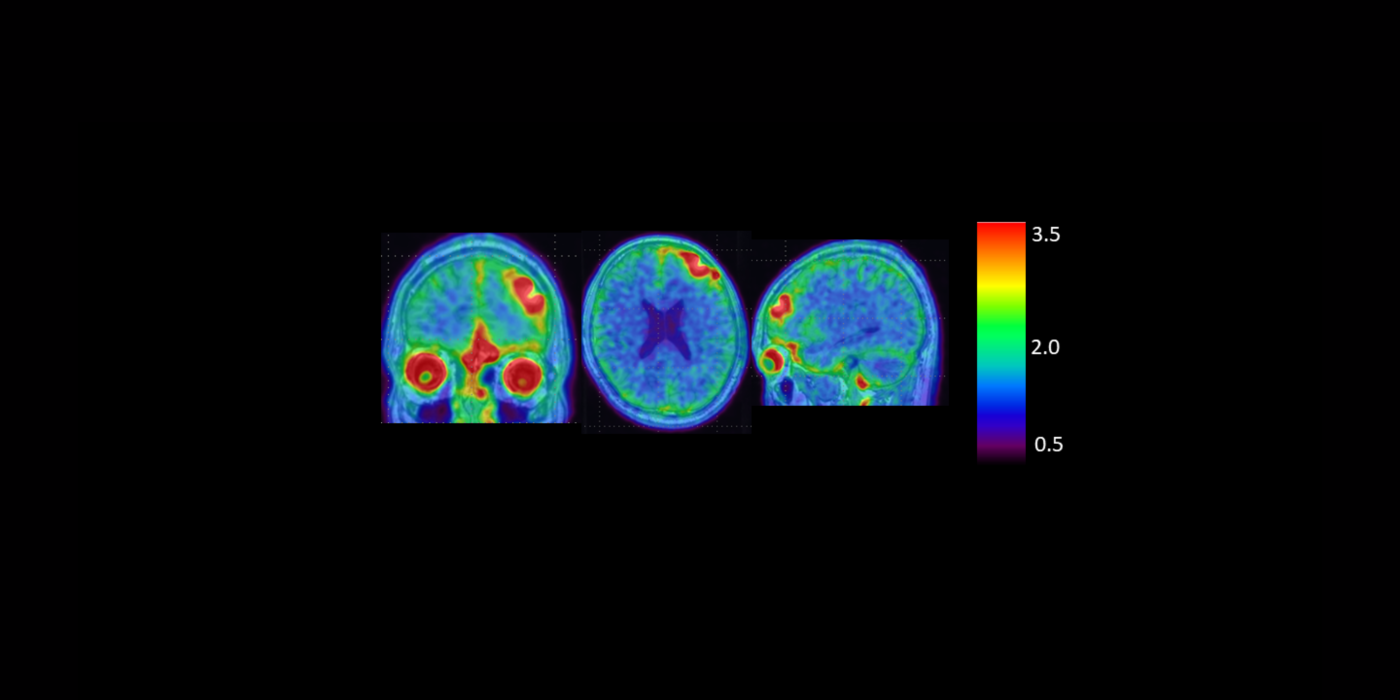
Tau positron emission tomography (PET) 18 fluorodeoxyglucose (F) MK6240 post-TBI
Focal radiotracer uptake in traumatic brain injury (TBI) regions corresponds to a degree of off-target binding to blood products, but may also represent acute tauopathy. See October 13, 2022 Butler lab Frontiers in Neuroimaging paper.
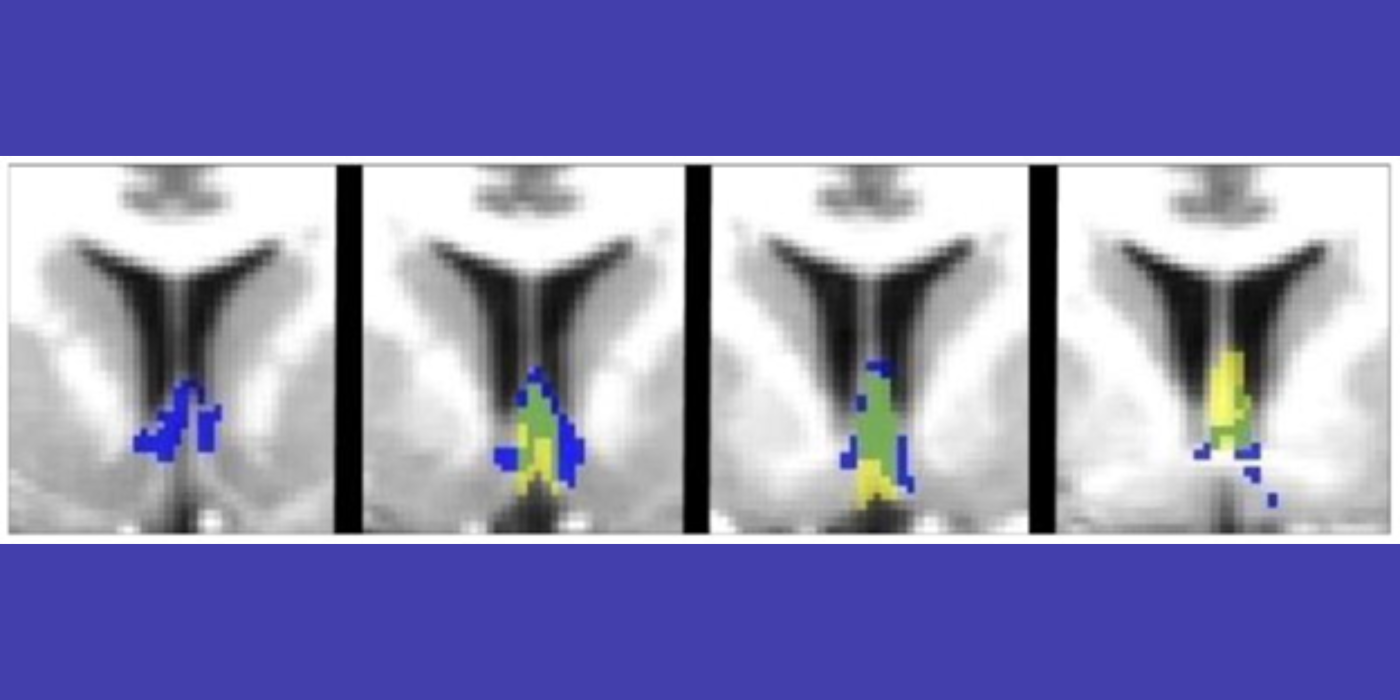
Visualization of septal nuclei brings Alzheimer's disease (AD) insights
A Butler lab manual tracing algorithm and automated methods for measuring septal nuclei found septal nuclei enlarged in early AD and temporal lobe epilepsy. The lab studies whether this is due to neuroplasticity, protein deposition, or inflammation.
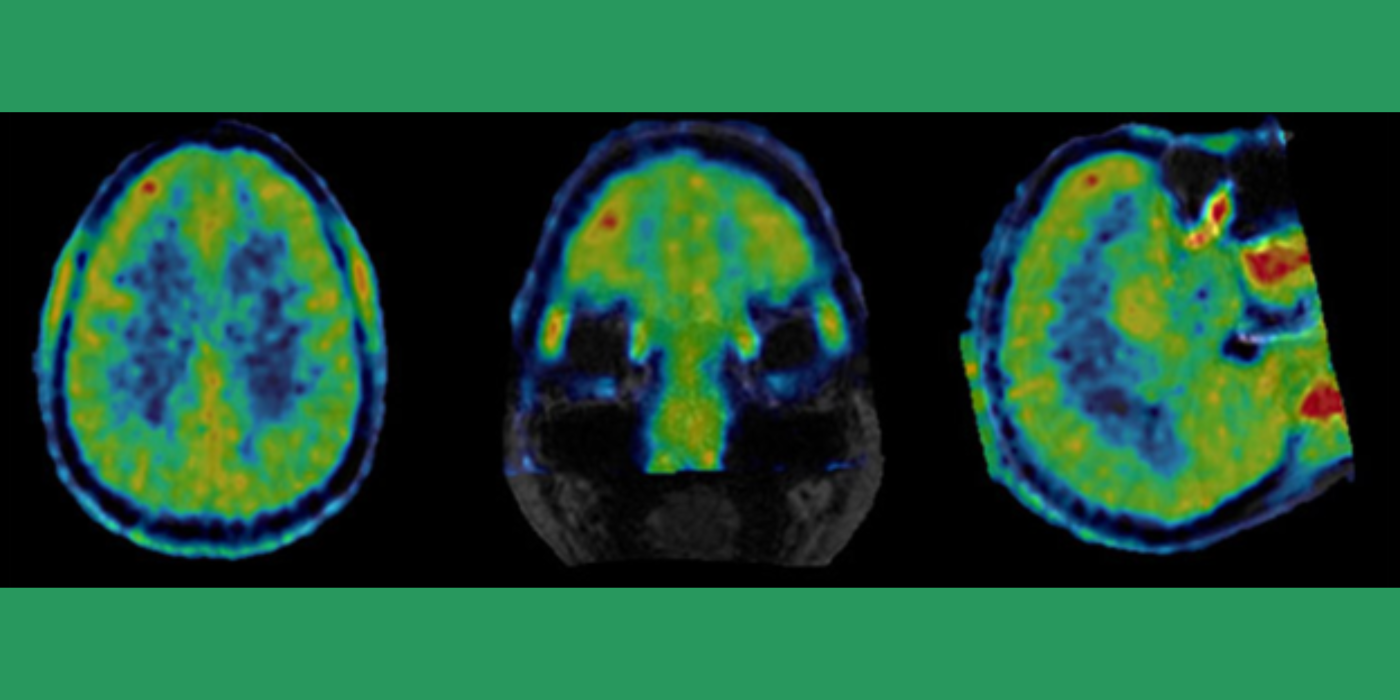
Positron emission tomography (PET) neuroinflammation imaging
Radiotracer binding to activated microglia translocator protein (TSPO) molecules marks neuroinflammation. Radiotracer uptake in right frontal lobe corresponds to an epilepsy hyperexcitability region appearing normal on magnetic resonance imaging.
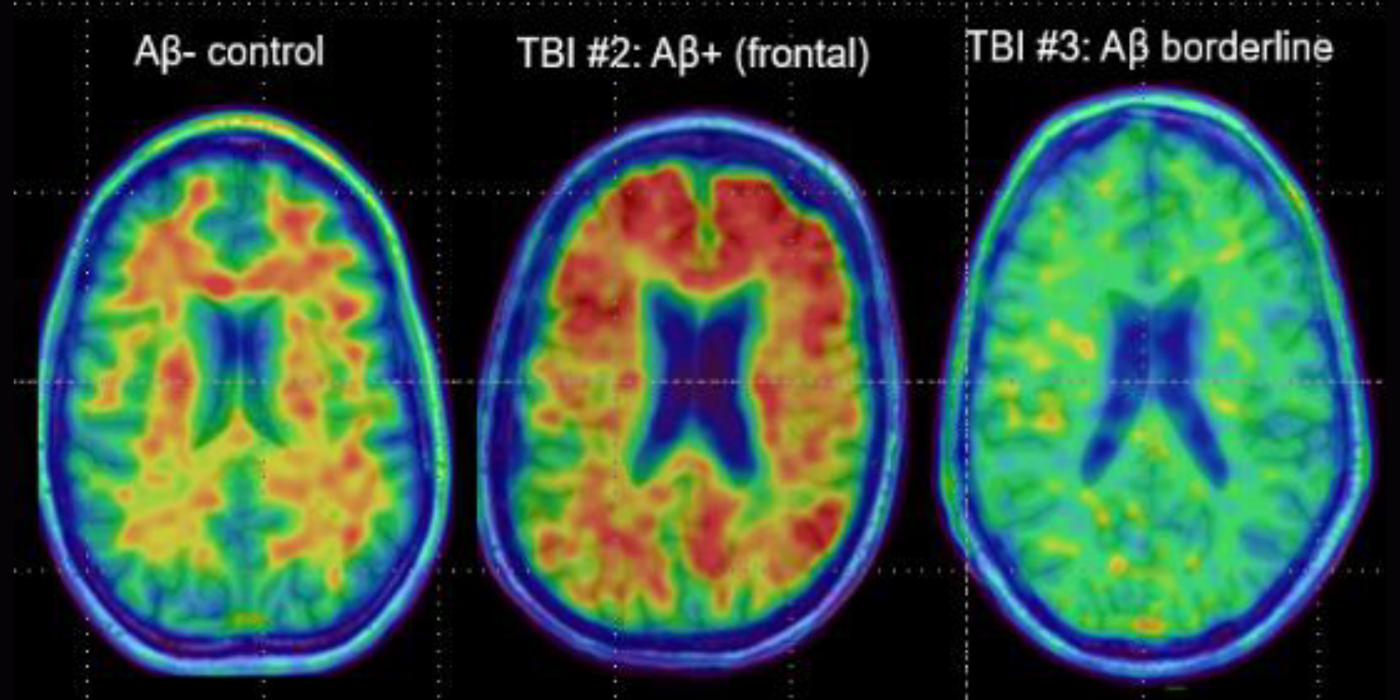
Post-traumatic brain injury (TBI) amyloid via positron emission tomography (PET)
Amyloid PET scans. Control shows a spidery binding pattern in white matter. The amyloid-positive subject has Alzheimer's disease-like radiotracer uptake in the frontal cortex. A young brain scanned a few days post-TBI is neither positive nor negative.






